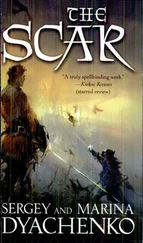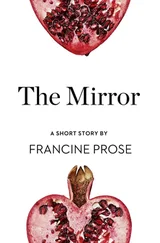* * *
Since my life and my transgressions can’t be separated from Jim’s story, allow me now to return to him, he who was, like me, a victim. He told me the heat in the belly of Oryoku Maru was unbearable, but this vague adjective does not really convey any true sense of the heat. You might get a better sense if I tell you that according to George Weller’s accounts, the heat must have reached nearly 130 degrees Fahrenheit. A hundred and thirty degrees Fahrenheit. Way too high, and yet approximately 10,830 degrees lower than the temperature of the earth where the atomic bomb exploded. It’s like a slow roast versus spontaneous combustion. The throats of the prisoners dried out slowly. The Japanese used panels to cover most of the hatches, so ventilation was nil. The first ones to pass out were those located at the extremes of the compartments. The only way to distinguish an unconscious passenger from a dead one was by his pulse; the heat was so intense that even the postmortem cooling process was halted. But nobody bothered to take anyone else’s pulse. The more people who died, the longer the oxygen would last. Weller recounts how the prisoners removed their clothes to breathe through their skin when they weren’t able to use their lungs. The ship’s wood absorbed the humidity of all the men piled on top of one another and oozed droplets of sweat. When their thirst became unbearable, the men would lick the little pearls of collective sweat. When the prisoners moaned because the air was so scarce, the Japanese man in charge, Mr. Wada, threatened to seal the hatches completely. Yet when the North American aviators circled the ship ready to bomb it, thinking there were only Japanese on board, Jim said, they all mustered one last morsel of energy to panic at this new threat of death—ironically, at the hands of their own. Yet the sound of the hatches rattling under the aviators’ bombs also brought hope, with fresh currents of light and air. And another thing: the Americans in the hold, delirious and half-mad by now, opened their mouths thinking it was water—or maybe they knew better—and drank the blood filtering down from the wounded Japanese on deck. Any liquid coming from the outside world was refreshing.
The accounts detail ever-increasing acts of madness as a result of the dehydration and the lack of fresh air. The Japanese finally brought pails into the hold for the prisoners to relieve themselves. But when the body breaks down, the mind adjusts its mechanisms arbitrarily, and what was once considered hideous was now material for buffoonery. Some men amused themselves by switching the pails of excrement for the pails of food—they were so alike.
JIM COULD NEVER HAVE SUSPECTED then that his true journey would begin fifteen years later, and that he’d make it hand in hand with a compatriot of his torturers. What ran through me was pure Japanese blood, not a drop of anything else that might decontaminate it for him. But the baby was as Japanese as I am, and the two of them had already sealed a pact of reconciliation, though I think the process of forgiveness was under way even earlier, when Jim had to walk among thousands of people, homeless children, roaming spaces where bedrooms had once been, carrying buckets into which they’d thrown whatever seemed even remotely attached to the memory of a loved one. Jim said they basically collected anything that wasn’t dust. I think he realized that while he was agonizing on the Oryoku Maru, my people’s humiliation was in gestation, the most devastating the world had seen to date. Walking a few months later through the ruined city among bodies maimed by his American colleagues must have allowed him to accept his daughter and then me in peace. Jim said not even the doctors in the American occupation forces were there to help. His sole mission was to observe, to study the effects of radioactivity, and they didn’t intervene even in the simplest stages of reaction, like vomiting or infant diarrhea. Unawares, some of the victims were still being used as part of the investigation linked to the Manhattan Project.
My people’s great misfortune caught me with a thermometer in my mouth. The fever should have kept me home in bed. I was only thirteen and it was my place to obey my mother, who preferred that I not attend school that day. But I couldn’t miss recess because my friends and I had left a game unfinished the day before, and I used every excuse in the book to coax my mother into letting me go. I had no idea this little act of defiance would set in motion what a few months later turned me into what I’d always wanted to be. The thought of playing at recess, of the game, was enough motivation for me to fight with my mother, and by eight o’clock sharp, after an hour in the car traveling to school, there I was sitting at my desk. My memory of the next few days has been wiped clean. I’ve never been able to remember anything, but the victor’s version of history offers some very precise data for reconstructing the things that went on while I sat at my desk, unaware of what was being dropped from the sky above, and a few seconds later, when I was prostrate and unconscious on the floor. I know the exact second when William Sterling Parsons, captain of the Enola Gay, released the bomb, checked the gauges, and began measuring the seconds it took for the artifact to fall the 31,000 feet from the plane’s altitude to the estimated point of detonation at 2,000 feet. I also know the crew expected the explosion to happen within forty-two seconds of release, so at forty-three seconds they were starting to get anxious. Tension built to a peak as they tallied the seconds in their heads. The experiment worked with a three-second lag: when the forty-fifth second struck, I was blown into another room. When I came to, nothing was left standing; there were no walls. The whole school had become a big playground, a playground without monkey bars, a gaping expanse open to a gaping city. Of the 152 pupils in school that day, I was the only one left. I watched a naked lump approach me in what had been the bathroom. It asked for water. I was frightened. Its head had swollen to three times the normal size. Only when the lump said her name did I realize it was my teacher. I ran away.
For years I gathered details about exactly what took place in the air while those of us on the ground went about our daily lives. Knowing the facts about the airplane and the launch of the bomb made me think I might fill some of the gaps in my own story. I used the same method to piece together what happened just after the explosion, while I was unconscious. For several years it was the best I could hope for, to fill the gaps in my memory with reports written by the people responsible for those gaps, and for hundreds of thousands of casualties, for the sick who still today are passing their sicknesses on from one generation to the next. So you see, sir, I was clutching at straws. It’s a sad method to have to put myself together with what was responsible for pulling me apart, and an impossible one too. After all, how could I lift myself up with the same tools that were meant to annihilate me? But this was what I had, and I grabbed on to it as a means to scar over part of my amnesia.
Once it released the weapon, the Enola Gay enacted its escape protocol, tracing a 155-degree turnaround toward the northeast. The crew put on their dark glasses and braced for the shock waves, which came a minute later, when they were nine miles away. In my case, the data was much less precise. I had no idea how long I had been unconscious or what time it was when I left the school. I remember that all the clocks had stopped at the same time: 8:16. But I have no idea how I got to the hospital. Maybe the person who brought me there doesn’t remember either.
Details of the following weeks spent among the huddled masses of the wounded are fuzzy. Later we learned there had been one doctor per three thousand victims. And though I didn’t know it at the time, I had burns over 70 percent of my body. My eyelids stuck together after a few days. I couldn’t open them. I thought I’d gone blind. No medicines, no tranquilizers, vicious pain. My only treatment was having my position readjusted. Someone came in to turn me over every once in a while. The pain was so severe I couldn’t tell if I was being placed faceup or facedown. My whole body was red-hot, in excruciating pain—my chest, my stomach, my knees, all part of the same incandescent slab with shoulder blades, buttocks, the back of my legs. Pain made my body lose texture, as if the front and back of me had melded into a single flat, uniformly blistering griddle. The first sign of recovery came when I felt the wetness of my urine. That’s how I could figure out my position. If the urine dripped downward, I was faceup. If it came straight out and formed a little puddle, I was facedown. They cleaned my eyes and I could open them again, so when the pain subsided just enough for a slight effort, I picked my head up to view my raw skin and discovered that while the shape of my extremities was intact, the area from my lower abdomen to my thighs was an unrecognizable pulp. The area was so swollen that I couldn’t be sure, but everything seemed to suggest that the bomb had been particularly vicious with my sex.
Читать дальше












